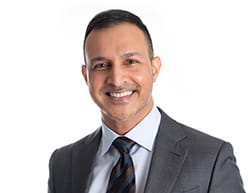The government of Bahrain has recognised that the growing economy, as well as the greater usage of and demand for energy, will slowly lead to the inevitable depletion of the country's largest sources of energy. With this in mind, there has been a gradual shift towards energy efficiency, and the introduction of alternative sources of energy.
Government Policy Approach
The government policy approach is built upon both international agreements, such as the Paris Agreement, the United Nations Sustainable Development Goals, and the League of Arab States Guidelines on Energy Efficiency, and local initiatives, such as the Economic Vision 2030. With the foundation of the broader goals set out in the aforementioned agreements, Bahrain has taken a target-based approach with its climate change policies, with the aim of realising the country's energy potential, whilst keeping in mind cost efficiency.
The policies take into account:
• Problem areas and where energy is being wasted and why, and how the specific climate in Bahrain exacerbates these wastages; and
• Areas for potential development and how the natural environment can be harnessed to produce energy in a more efficient and sustainable manner.
Policy implementation coincides with education and incentive-based initiatives to encourage consumers to learn more about the country's potential energy efficiency, and to provide recognition for those who introduce renewable energy into any new projects and initiatives.
How it applies to real estate
The real estate sector has been identified as the largest consumer of electricity in Bahrain, with grid consumption from 2009-2013 of both commercial and residential buildings, totalling 86.1%.
The Sustainable Energy Unit (SEU) has set two targets which have shaped the regulations around building efficiency, and are expected to make the largest contribution to the national energy efficiency target:
• To significantly reduce the electricity used in buildings; and
• To improve the thermal efficiency in buildings
As a transition towards energy efficiency, the government introduced Minimum Energy Performance Standards (MEPS) and Labelling requirements in respect of lighting, air conditioning, and appliances. The MEPS apply to both residential and commercial buildings, and were introduced as a cost-effective way of steering manufacturers towards the production of more efficient products, and encouraging consumers to make a preference towards those products. As an extension to the already existing regulations, the National Energy Efficiency Action Plan (NEEAP) aims to establish higher energy efficiency specifications, with the extension to include household and commercial lamps, large AC units, refrigerators and freezers, and washing machines, and encourage the use of district cooling. District cooling is the process of supplying chilled water to multiple buildings through a network of underground pipes, from one central plant. Although several district cooling networks already exist in Bahrain, implementation has been slow due to technical and financial barriers. The NEEAP aims to address those barriers and introduce a regulatory framework to overcome them. While the regulations are not yet in place, real estate developers will be required to conduct a cost benefit analysis demonstrating why they cannot connect to the existing district cooling infrastructure.
In addition, the NEEAP brings forth three Green Building Initiatives, with the aim of reducing the energy demand of buildings. These initiatives include:
The Building Energy Efficiency Code
The code relates to the target of improving thermal efficiency of buildings, and provides an extension to Bahrain's existing thermal insulation regulations applicable to new buildings, as well as the renovation of existing buildings. The existing regulations set minimum requirements for the efficiency of building envelopes, and required that all buildings be insulated. The new code introduces specific requirements for both residential and commercial buildings. Under the new code, residential buildings will be required to increase the efficiency of AC systems, have lower shading coefficients for windows, reflective roofs and more efficient lighting systems. While commercial buildings will be required to have improved building envelopes (including insulation, reflective roofs, window to wall limitations) and increased HVAC, lighting, and water heating systems. This code will go hand in hand with Renewable Energy Mandate for New Buildings – under the National Renewable Energy Action Plan (NREAP) – which will require renewable energy technologies to be integrated into the design of new buildings.
The Building Energy Labelling Code
Under the Building Energy Labelling Code, buildings will be placed under certain categories, depending on their overall efficiency. The SEU aims to determine these category classes, and the efficiency of specific buildings, through the introduction and development of energy audit procedures and tools, professional capacity building to conduct audits, and a national database. Internationally, in those countries which have already adopted a similar coding system, more energy efficient buildings have been shown to have been sold or rented and a higher price. Therefore, the labelling code acts as an incentive for building owners or developers to implement energy efficiency measures to improve their rating, and possibly make greater returns.
The Green Building Certification Programme
The certification programme is a method of incentivising real estate developers to gear new builds towards efficiency and sustainable energy technologies and to promote the construction of more resource-efficient buildings. The Ministry of Works, Urban Planning and Municipalities, has already implemented a set of green building criteria for new build and renovations of public buildings, and is in the process of implementing a voluntary certification scheme under a points based system for meeting a set of green building criteria for those outside the public sphere. Until then, the SEU has advised that real estate developers can apply voluntarily to international certification bodies, such as Leadership in Energy & Environmental Design (LEED), Building Research Establishment Environmental Assessment Methodology (BREEAM), or Excellence in Design for Greater Efficiencies (EDGE), for an independent certification of their projects.
Sustainable Energy
The SEU, governed by the Office of the Minister of Electricity and Water Affairs, was established with the support of the United Nations Development Programme (UNDP), to lead and promote sustainable energy policies and practices in Bahrain. The SEU has put together a plan (the NREAP), which recognises Bahrain-specific opportunities for harnessing renewable energy sources, to ensure that economic growth and the increasing demand for energy is not correlated with a negative impact on the environment.
The SEU has set a target of 5% (total production of energy from renewable energy sources) by 2025, and 10% by 2035. In order to meet those targets, three policies have been put forth:
Net Metering Scheme
Net metering is the process by which consumers can generate their own electricity, from renewable sources for consumption and export any excess electricity to the national grid. Consumers are then credited for that excess energy in the following billing period. This cost-saving process is an incentive for large energy consumers who would benefit from reduced electricity bills as well as the ability to generate electricity on-site.
Tender Based Feed-In Tariff
The main purpose of this policy is to attract developers with experience and know-how in the field of renewable energy with the incentive of a long-term purchase guarantee of electricity from renewable sources.
Renewable Energy Mandate
The Mandate will apply to all new buildings and real estate development, and will require them to source a minimum percentage of their energy from on-site renewable sources, and function alongside the net metering scheme. As an incentive for developers, the SEU has stated that those who exceed the minimum percentage of renewable energy use will be issued a certificate of award in recognition of their achievements.
Future Initiatives
Bahrain's commitment to meeting the sustainability targets has been exhibited through the implementation of initiatives and exciting projects which are focused around the development of renewable energy sources.
Large-scale solar farm
Due to its size and nature, the Askar landfill site - Bahrain's largest landfill site - was identified as a favourable plot for the development of a large-scale solar farm. The project is expected to be completed in 2021 and aims to provide clean power for residents of nearby towns.
The King Hamad American Mission Hospital
The American Mission Hospital's (AMH) new project in Aali, will be Bahrain's first entirely eco-friendly hospital. The hospital, which is set to open in 2022, is projected to be entirely run by solar energy with a plan in place to install 3,000 solar panels on the building's roof.
Electricity and Water Authority Renewable Energy Initiative
As part of the NREAP, Bahrain's Electricity and Water Authority (EWA) proposed the development of Bahrain's first hybrid renewable energy system, a combination of solar and wind energy, in the Al Dur district. The project, which commenced in 2017, is now undergoing a second phase expansion which will bring its water and power generation capacity from 800MW to 1,500MW.
While this list is not exhaustive, it represents Bahrain's commitment to diversifying energy sources with the aim of reducing the adverse effects of economic growth on the environment. The completion of these exciting projects, and the implementation of the energy saving initiatives, is a great leap for Bahrain in achieving national sustainability targets and setting the scene for future projects within the region, and the international sphere.

